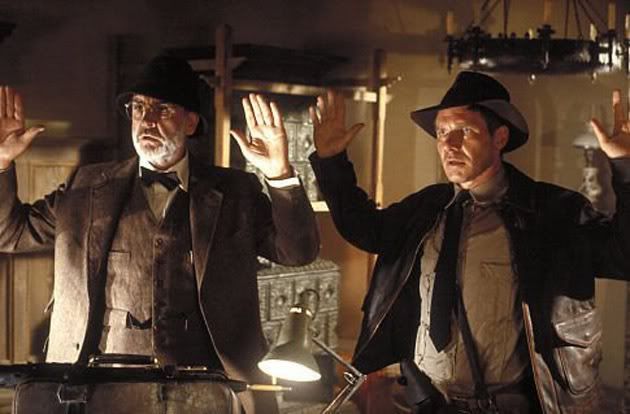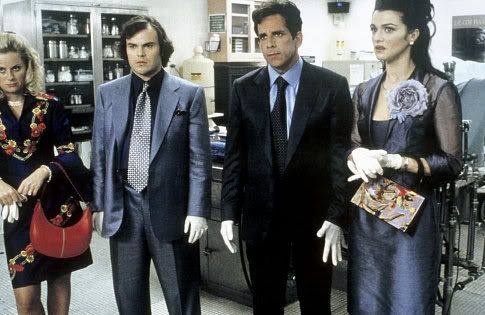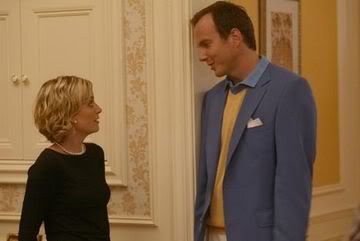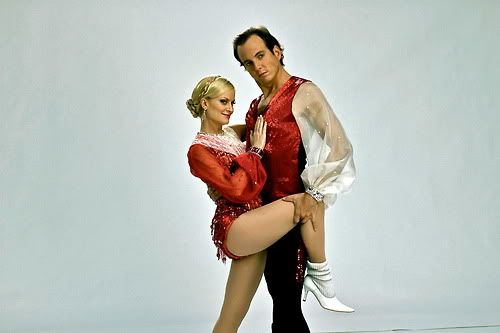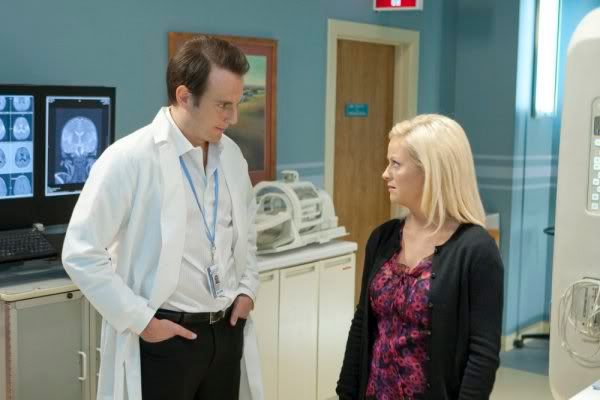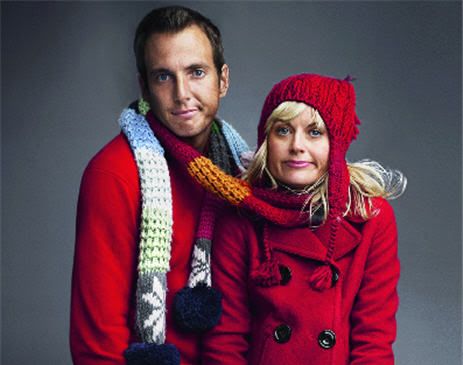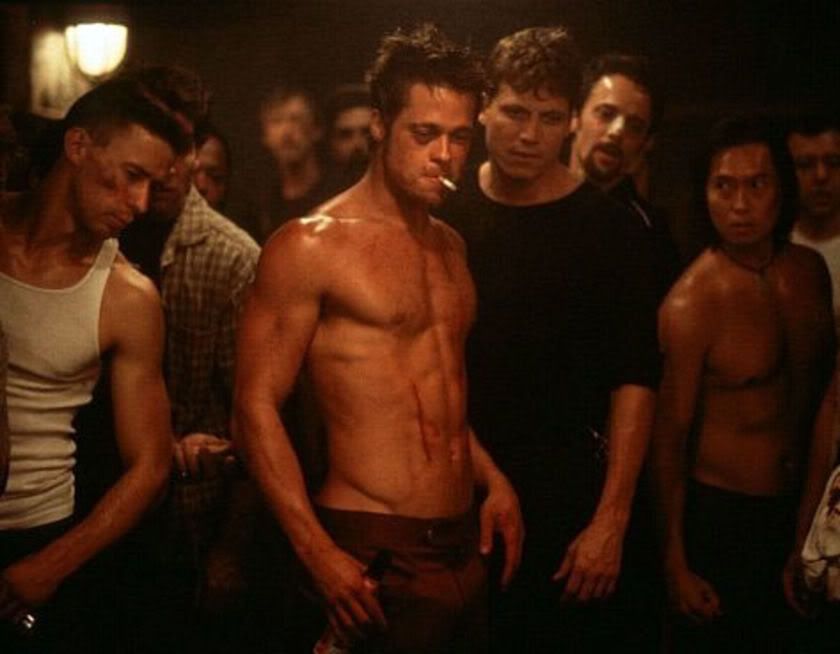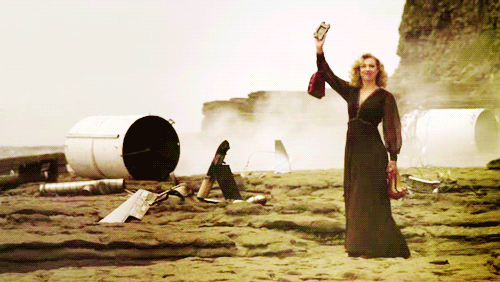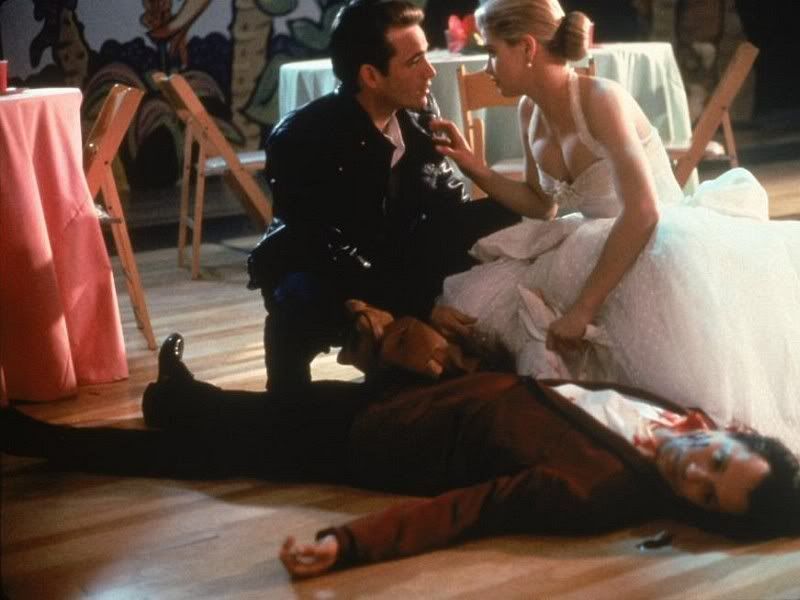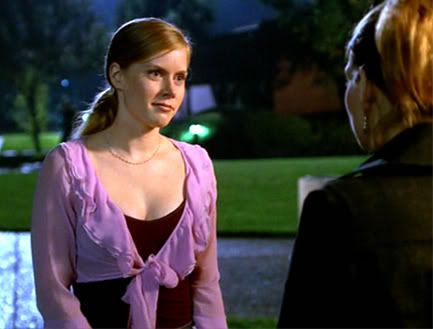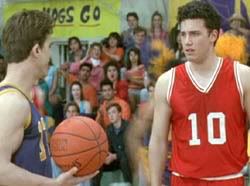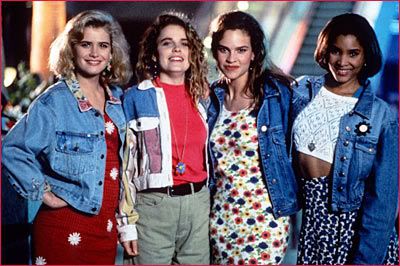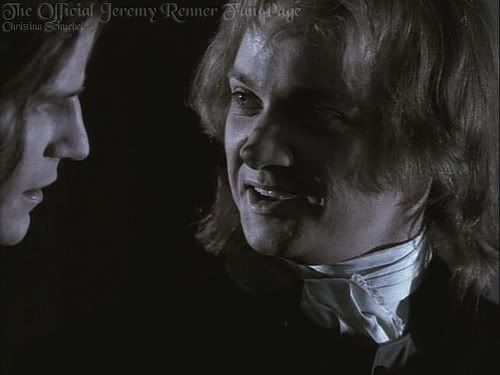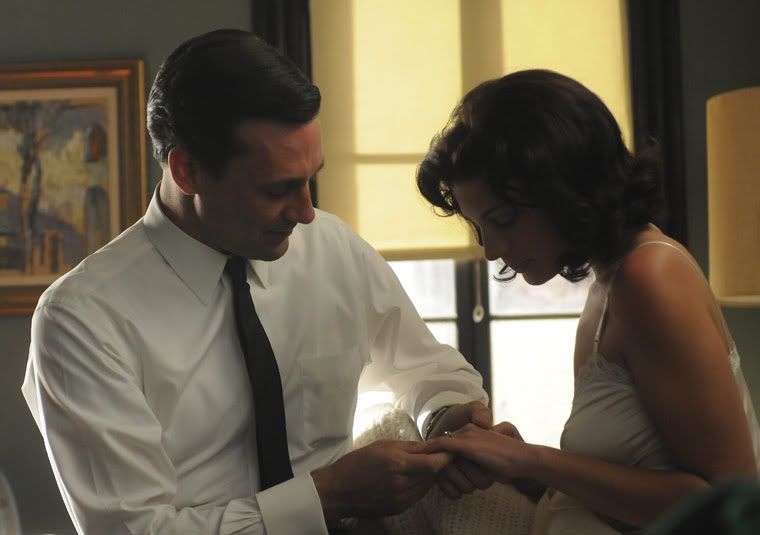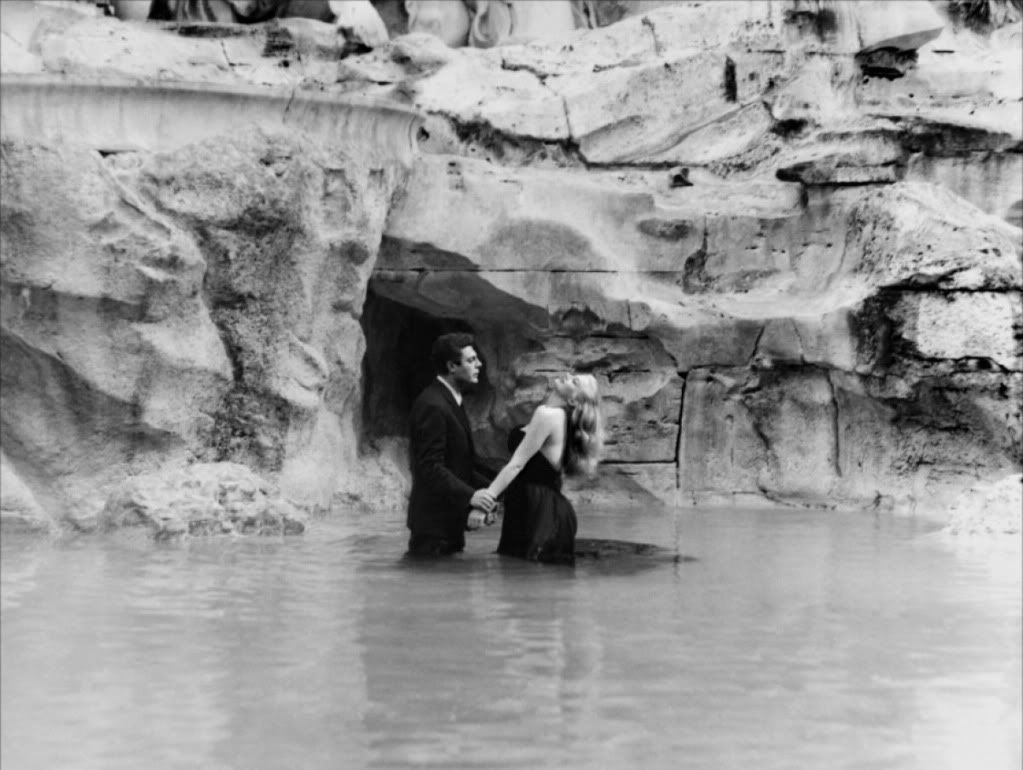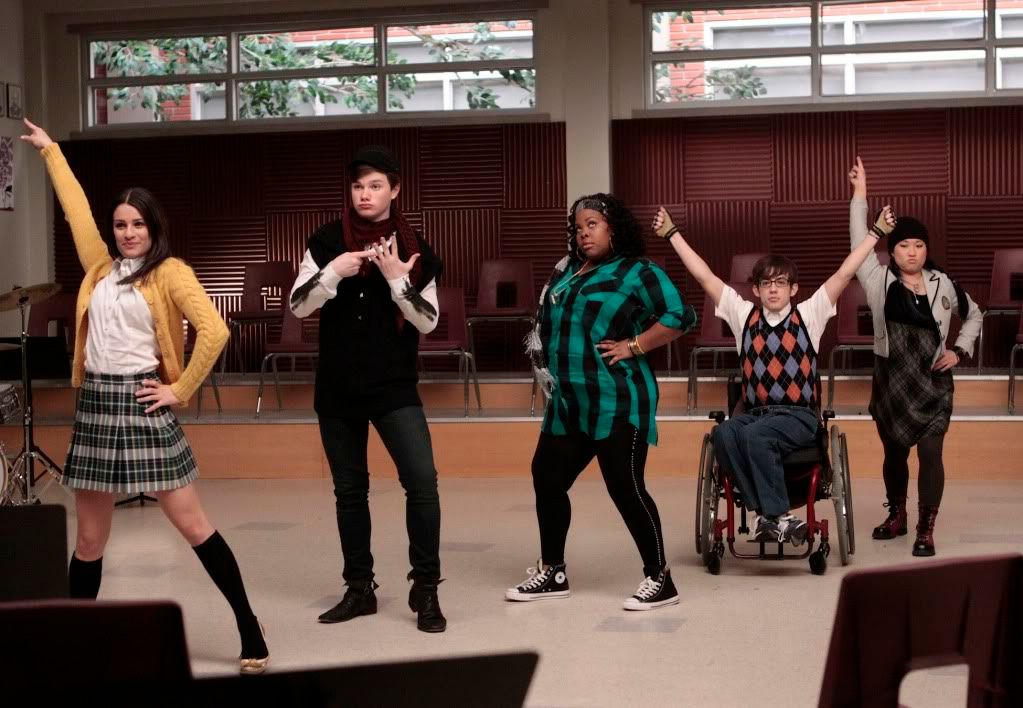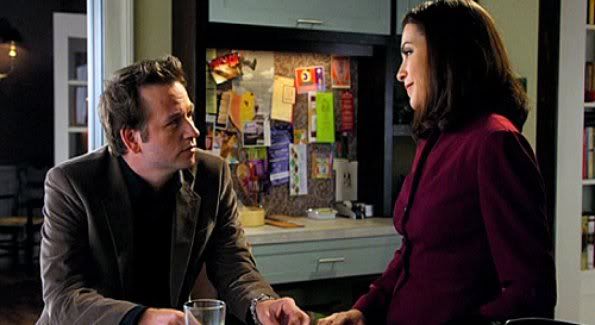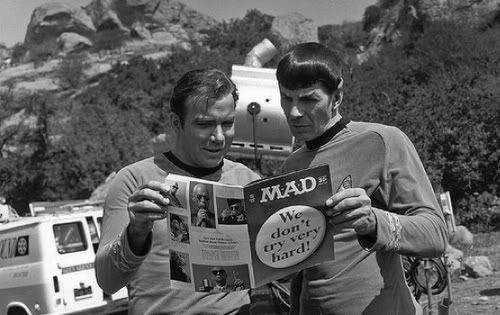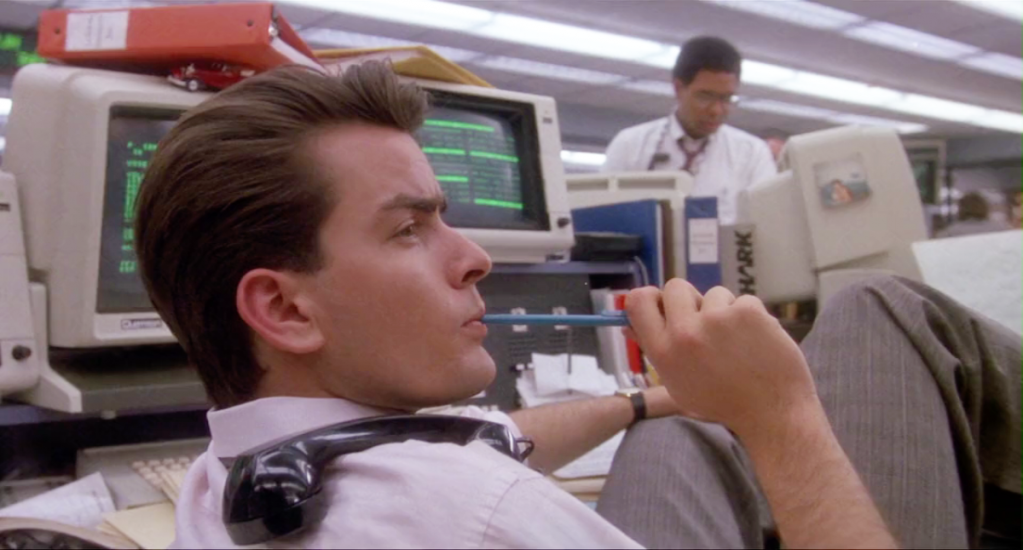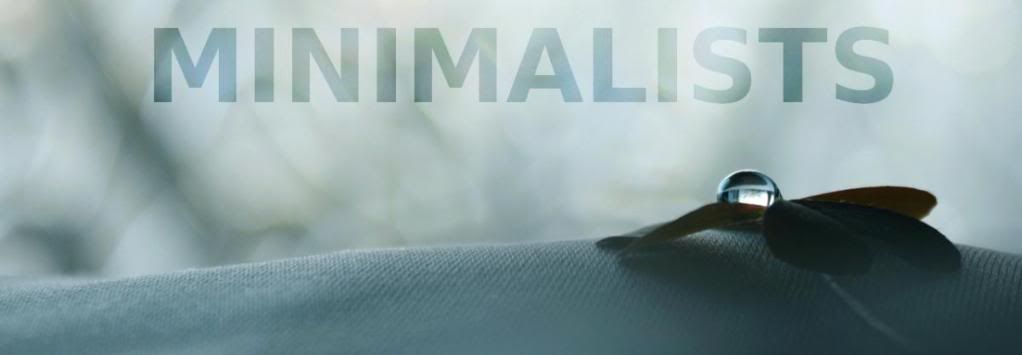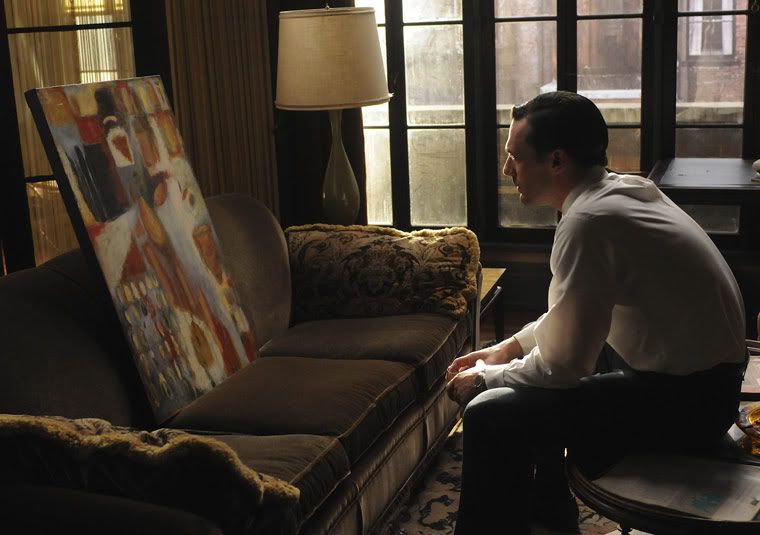 |
| Don Draper stares into the abyss of addiction... |
Here we go, the penultimate episode! This week, there was one key moment, the 'tentpole' of the episode, if you will, and everything else that happened built up to or receded from that moment (apart from the Sally Draper subplot, but we'll return to that - maybe - at the end.
THE KICKOFF
The Jenga Blocks are all in place, there's only a few left to be pulled out, and every move will either defer the inevitable or send the whole thing tumbling down. Don't first wrong move: trying to delay the inevitable. The new client pitches reeked of desperation, and the pitch receivers could smell potential failure all over the SCDP executives.
As a death pall settles over the office, the creative staff fear for their jobs, and senior staff are forced to contribute to an emergency collateral fund (which leads to a hilarious scene where we are reminded who actually wears the pants in the Campbell house).
Peggy, ever the voice of reason, objects to the new 'monkeys, go on playing with your typewriters, until of course you're fired' work mandate, and compels Don to do something - have dinner with an old flame (Hey it's Midge! We like Midge! She's fun and carefree! Oh and...now she's a heroin addict). Don pities her enough to buy one of her paintings, but she still plays it cool ("cash only darling, we don't accept checks in Casa de Hippie Syringe").
And so we cut to Don, staring into the eyes of the painting for what felt like ten minutes on screen.
THE POWER PLAY
This encounter with the dire desperation of addiction sends Don running for his livejournal, mainly to complain: "Dear Diary, all I want is to shout and drink, but who will I shout at and drink with if evil Lucky Strike and heroin take away all of my friends and servants?" That didn't actually happen, thank god (i was in great fear though, of more inane inner commentary from Don's AA journal).
Instead, we get a surprisingly well expressed (if altogether false) assertion that "Hey big tobacco, it's not me, it's you, and by the way here's a restraining order." What Don forgets to tell us is that this angry breakup letter will be released as a full page ad in the New York Times. Don also forgets to tell Sterling, Cooper, Pryce and Campbell, which has has the immediate effect of Bert collecting his shoes and quitting. Perhaps unsurprisingly, Don deals with individual hissyfits from all the men in the office (though really, what does Roger care anymore?). But they mostly come around when the American Cancer Society comes a-calling.
The women though? Surprisingly approving. Once again, we see Megan laying her honey trap, that she's 'the only one who really gets him', and also 'marry me!' Faye, disappointingly, does not freak out at him, which she would be entitled to given that SHE WAS FIRED FROM MULTIPLE ACCOUNTS AS A DIRECT RESULT OF DON'S AD. But she smells opportunity - date Don in the open - like she obviously smells a threat - the secretary with the googley eyes.
And of course Peggy approves, smiling at Don like it was all her idea in the first place (which it sort of was, but she was the catalyst, not the final architect of the power play).
THE OFFSCREEN FALLOUT
As one might expect, Don gets tons of calls as a result of his bombastic essay. Here are two notables:
Caller #1: Emerson Foote - not just a throwaway comment. He was a creative director who once handled American Tobacco and Lucky Strike, until he became disgusted with his addiction to cigarettes, quit McCann-Erickson, and started a new agency that would not represent tobacco.
Caller #2: "Bobby Kennedy" I'm sure that when Robert Kennedy called to speak with Don, I wasn't the only one to think "dear god, please don't let us hear him speak." But they ignored me, and we got that awful accent. Thankfully the whole thing was a gag by Ted Chow-ow-ow, which was pretty great given how well he fooled Don.
OTHER STUFF GOING ON
Back in the Ossining house of 'denial is not just a river in Egypt, it's a life philosophy,' we see Sally growing past Betty in the maturity race (which puts Betty at about 4 years old now? I'm not being unfair, Betty's the one who would rather see a child psychiatrist than a grown-up doctor). This story concludes with Betty proving, yet again, that solving her own 'problems' (really Betty? Moving to a new neighborhood to get away from a little boy?) is more important than her daughter's mental stability. I'm sure this won't come back to bite her AT ALL!












